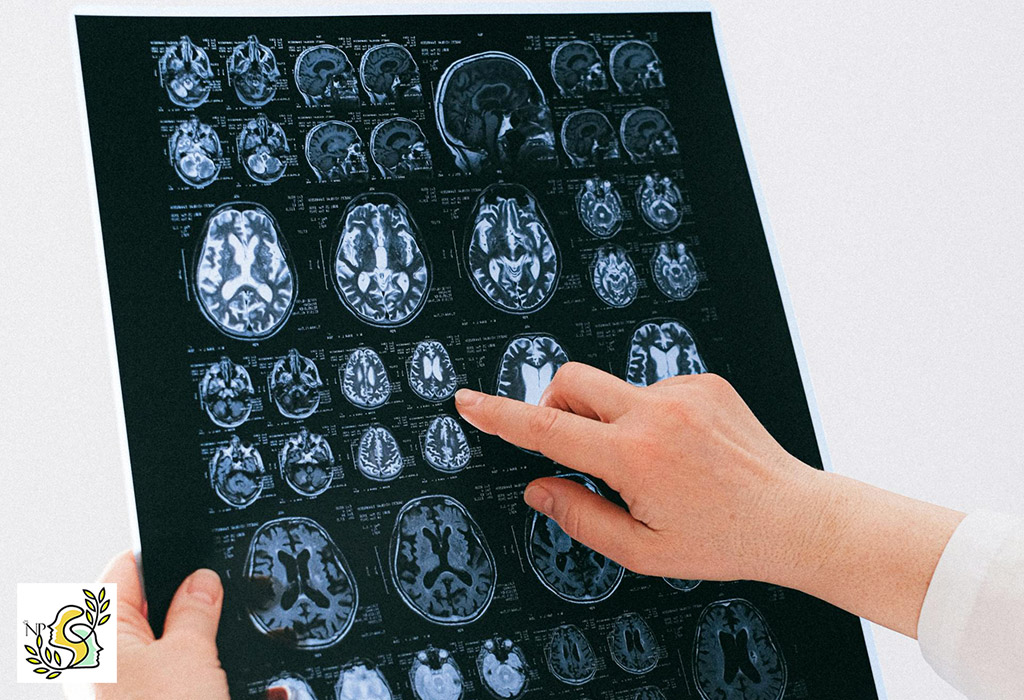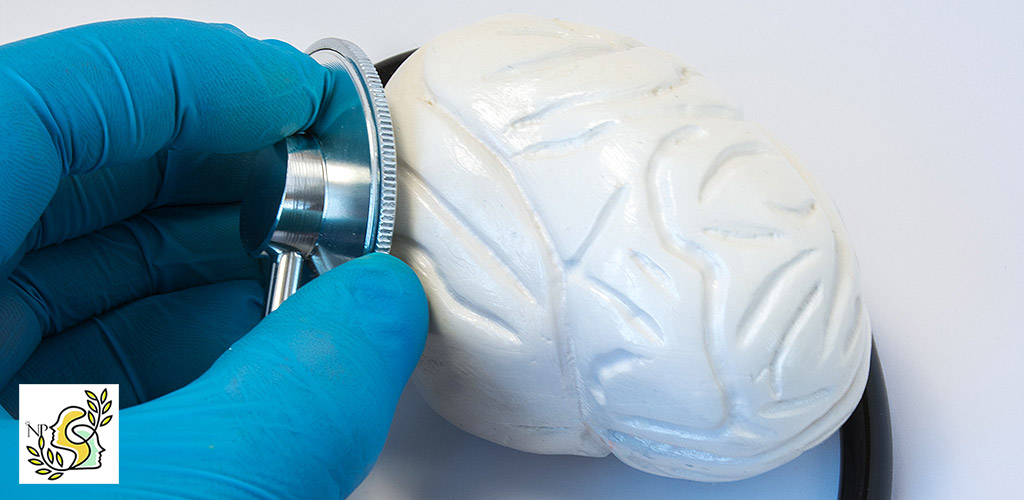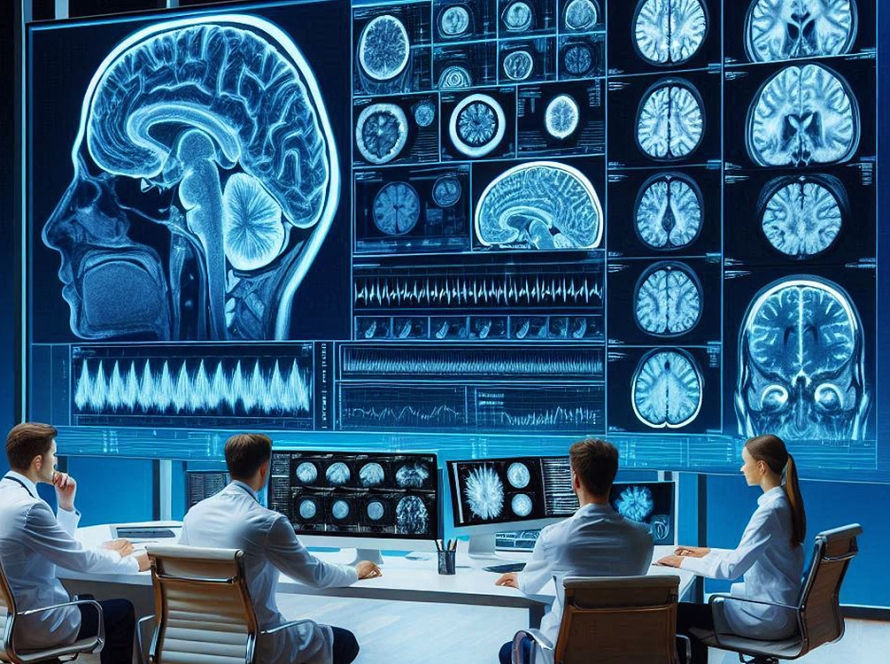Memory impairments are commonly reported by individuals who have experienced a traumatic brain injury (TBI) or stroke. These deficits can be persistent and debilitating, significantly impacting the quality of life. Such life-altering events can affect a person’s ability to recall past experiences, retain new information, and manage daily tasks. Memory impairment following an acquired brain injury or stroke can disrupt daily living and diminish overall quality of life, but these effects can be mitigated through memory rehabilitation.
Memory rehabilitation is essential for helping individuals regain cognitive abilities after a brain injury or stroke. This process aims to improve cognitive deficits through various therapeutic interventions, exercises, and strategies tailored to each patient’s unique needs. This article serves as a resource for patients, caregivers, and medical professionals seeking to understand and effectively implement memory rehabilitation strategies following brain injury or stroke.
Table of Contents
Memory loss disorders

As people age, various changes occur throughout their bodies, including the brain. Consequently, some individuals may notice a decline in memory and find it more challenging to recall information quickly. Some people may have difficulty remembering new events, or recalling memories, or may experience both of these issues. It’s also common to occasionally misplace items or forget to pay a bill. These situations typically indicate mild forgetfulness instead of a serious memory issue.
It’s important to understand that forgetting things occasionally is normal at any age, and typical aging does not lead to significant memory loss. However, stress, anxiety, or depression can also contribute to forgetfulness, confusion, difficulty concentrating, and other symptoms that disrupt daily life. Additionally, alcohol use disorder can severely impair mental abilities and may lead to memory loss, especially when interacting with medications. Memory loss can be caused by various diseases as well.
Types of memory disorders
Experiencing issues with memory and thinking can be stressful. While some memory loss is a normal part of aging, it can also be caused by a disorder or brain injury. Here are some common conditions linked to memory loss:
- Brain Injury
After a traumatic brain injury (TBI), individuals may experience confusion and difficulty storing memories for some time. This condition, known as post-traumatic amnesia, can last anywhere from a few minutes to several weeks or even months, depending on the severity of the injury.
- Stroke
Many people experience memory issues following a stroke, particularly in the initial weeks and months. Short-term memory is often more affected than long-term memory. For example, a person might struggle to remember something they were just told but could recall an event from 10 years ago.
- Alzheimer’s Disease
Memory loss is a key symptom of Alzheimer’s disease. Early indicators include difficulty recalling recent events or conversations. As the disease progresses, memory continues to decline, and additional symptoms may emerge. Initially, individuals may be aware that they are having trouble remembering things and thinking clearly.
- Huntington’s Disease
Huntington’s disease leads to a decline in cognitive abilities, including memory, concentration, judgment, and planning skills. Changes in the brain associated with the disease can also affect mood, causing symptoms such as depression, anxiety, and uncharacteristic anger or irritability.
- Dementia
Dementia is characterized by memory loss due to damage in the brain, affecting areas responsible for creating and retrieving memories. As memory problems worsen, they impact everyday life. Dementia diagnosis requires evidence of a significant decline in one or more of the following cognitive domains:
- Complex attention
- Executive function
- Learning and memory
- Language
- Perceptual-motor function
- Social cognition
Sometimes, memory loss occurs with mental health problems. Memory loss psychological disorders are:
- Depression
Depression is associated with memory problems, such as forgetfulness and confusion. It can make it challenging to focus on work or other tasks, make decisions, and think clearly. Additionally, stress and anxiety can contribute to poor memory. Individuals with depression often experience short-term memory loss.
- Schizophrenia
Moderate quality evidence suggests that people with schizophrenia and an alcohol use disorder have more impaired working memory compared to those with schizophrenia who do not have any substance use disorder. High-quality evidence also indicates a small impairment in working memory among smokers versus non-smokers with schizophrenia.
- Bipolar Disorder
Bipolar disorder and memory loss can sometimes be linked, as mood swings and certain treatments may affect cognitive function. This disorder may also influence cognitive processes, including memory. As a person’s mood shifts, they may notice alterations in their memory. More extreme mood states can lead to an increase in memory problems.
- Post-Traumatic Stress Disorder (PTSD)
Post-traumatic stress disorder (PTSD) is a serious mental health condition that can impact all aspects of a person’s life—not just emotionally, but also cognitively and physically. People with PTSD are more likely to experience changes in various types of memory, including both long-term and short-term memory. Memory loss post traumatic stress disorder can significantly impact a person’s ability to recall events related to the trauma they experienced.
Other factors that may cause memory problems include:
- Blood clots, tumors, or infections in the brain
- Thyroid, kidney, or liver problems
- Medication side effects
- Mental health conditions, such as depression and anxiety
- Alcohol or drug misuse
- Sleep problems
Memory and rehabilitation

Successful memory rehabilitation can significantly improve the quality of life for those suffering from dementia or other memory-related disorders. Memory disorders are among the most common and debilitating cognitive impairments that arise following acquired brain damage. The rehabilitation of these disorders is complex and influenced by various factors, including:
- The type and severity of the disorder
- Associated cognitive challenges
- The patient’s insight and motivation
- The goals of rehabilitation
For any therapy to be successful, detailed planning of the intervention is essential. In memory rehabilitation, a comprehensive therapy plan should assess the quality and extent of impairment, identify specific target problems, anticipate potential issues with compliance, and suggest ways to retain newly acquired information. It is crucial that rehabilitation strategies be tailored to meet each patient’s individual capacities and needs.
Cognitive remediation strategies aim to restore lost memory functions, provide compensatory techniques, and teach the use of external memory aids. Some patients may benefit from learning strategies to improve their ability to remember names and specific terms, a skill that has been explored in various studies. For many patients with severe memory impairment, fostering independence in daily activities is the primary goal. Rehabilitation neuropsychology assists patients in understanding brain injuries and their consequences while helping them develop new strategies to mitigate these effects and work toward achieving their life goals.
Memory rehabilitation techniques
The Rehabilitation of Memory Disorders involves specialized therapies aimed at improving cognitive function and helping individuals regain lost memory skills. Understanding memory impairment and the development of specific rehabilitation techniques depend on a conceptual framework formed by experimental studies involving both healthy participants and those with memory impairments. Cognitive rehabilitation exercises are designed to assist individuals facing cognitive challenges due to internal or external brain injuries. These exercises aim to enhance memory, attention span, processing speed, and problem-solving abilities. The primary goal is to help patients recover from conditions such as stroke, dementia, or traumatic brain injuries (TBI), providing them with rehabilitation to rebuild their cognitive skills, adapt to changes, and develop new abilities. Through intensive therapy, the rehabilitation of memory become possible for those suffering from amnesia. Common memory recovery techniques used in psychotherapy include:
- Hypnosis
- Age regression
- Guided imagery
- Dream interpretation
- Bibliotherapy
Memory problems are a frequent cognitive complaint following strokes and traumatic brain injuries (TBI), impacting the ability to perform daily activities. Cognitive rehabilitation for memory deficits after such events aims to retrain lost or impaired memory functions or teach patients strategies to cope with these challenges. Here are some rehabilitative exercises designed to improve memory following a stroke or traumatic brain injury (TBI):
How to improve memory after stroke?

People often experience memory problems following a stroke, which can lead to challenges in everyday life. The extent and type of memory issues, as well as mood changes and the ability to perform daily activities, can vary widely. These differences depend on several factors, including the stroke’s location in the brain, its severity, the individual’s age, and their prior health status.
Patients often benefit from memory rehab after stroke to help regain cognitive function and improve quality of life. Memory rehabilitation, a component of cognitive rehabilitation, can play a significant role in recovering memory functions or helping individuals adapt to their challenges. Cognitive rehabilitation for memory deficits after stroke has shown promising results in improving patients’ cognitive functions. However, the effectiveness of memory rehabilitation in significantly improving memory issues, mood, daily performance, or overall quality of life remains uncertain. Here are some techniques to help overcome memory problems after a stroke:
- Games
Simple card games that involve matching, such as Concentration or Go Fish, can help enhance working memory skills. More complex games like Simon (which requires repeating visual sequences) or Guess Who? (which involves categorizing pictures by similarities and differences) can provide additional memory challenges.
Here you can learn about 6 memory games for stroke and brain injury recovery.
- Paper and Pencil Activities
Various paper and pencil tasks, including word searches, spot-the-difference pictures, or Sudoku, can also help improve memory skills. These activities often come in beginner, intermediate, and advanced levels, making it easy to adjust them to the survivor’s abilities.
- Technology-Based Exercises
There is a growing selection of technology-based programs designed to enhance cognitive skills, such as memory. For instance, the CT Speech & Cognitive Therapy App features over 100,000 exercises aimed at improving cognition and language. It can automatically adapt the difficulty of exercises to match the user’s skill level. Other programs, like Lumosity or virtual reality applications, may also help boost memory skills.
How to improve memory after traumatic brain injuries (TBI)?
The rehabilitation of memory is a critical step in treating traumatic brain injuries. After experiencing a moderate to severe traumatic brain injury (TBI), you may find it more challenging to remember things day to day. Research has identified few effective methods to restore the brain’s natural ability to learn and remember. However, one or two medications may be worth exploring. Here are some techniques to help overcome memory problems after a TBI:
- Exercise Your Brain
Think of your brain as a muscle that needs exercise. Engage in activities that stimulate your mind, such as memorization tasks or crossword puzzles. Consider consulting a memory specialist for strategies to improve your memory.
- Designate a Spot for Important Items
To avoid misplacing keys, your wallet, or important documents, establish a specific location at home where you always put these items.
- Write Things Down
Make lists of tasks to remember while the information is still fresh. Use a to-do list and fill out a daily planner for the days ahead.
- Break Down Tasks
Simplify your daily chores by breaking them into smaller, manageable steps. Focus on completing one task at a time before moving on to the next.
- Find Words More Easily
If you’re struggling to recall a specific word, try describing it using similar terms. You might also stimulate your memory by going through the alphabet to find the right starting letter.
- Establish a Regular Sleep Routine
Maintain consistent sleep patterns by going to bed and waking up at the same times each day. Fatigue can impair cognitive functions, so avoid overexerting yourself when you’re tired.
- Manage Stress
Steer clear of stressful situations and intense emotions. Find ways to reduce stress through exercise, deep breathing, massage, listening to music, or engaging in hobbies you enjoy.
- Limit Stimulants
Avoid caffeine, alcohol, and nicotine, as they can negatively impact your cognitive function.
- Minimize Distractions
When focusing on a task, try to reduce distractions to improve your concentration.
By integrating these strategies into your routine, you may enhance your memory and cognitive abilities post-TBI.
Conclusion
Memory rehabilitation after a brain injury or stroke is crucial for improving the quality of life and functional independence of those affected. The rehabilitation of memory can be a challenging process for individuals recovering from traumatic brain injuries or stroke. Through structured therapeutic interventions—such as cognitive exercises, compensatory strategies, and the use of assistive technologies—patients can regain aspects of their memory or discover alternative ways to manage memory impairments. The extent of recovery varies based on the severity of the injury and individual factors; however, consistent rehabilitation efforts can lead to significant improvements in memory function, foster neuroplasticity, and help individuals adapt to their new cognitive limitations. A multidisciplinary approach that involves healthcare professionals, patients, and caregivers typically yields the best outcomes for achieving sustained improvements.
Frequently Asked Questions
Frequently Asked Questions about rehabilitation of memory after brain injury or stroke:
Can post traumatic stress disorder cause memory loss?
PTSD impairs memory. It means that at the slightest hint of memories of trauma, intrusive flashbacks can occur. They can take you back to the worst times of your life. But it can also lead to large memory lapses and short-term memory impairment.
Can bipolar disorder cause memory loss?
These individuals may have trouble with short and long-term memory, struggle to think things through at a quick speed, and have difficulty thinking outside of the so-called box.
How long does it take to restore your brain?
Recovery time varies but it can take up to two years to fully recover. In some cases, it can take from five to 10 years to recover following the injury.
How to help with memory problems? And, is it possible to recover lost memories?
Tips to improve your memory: Stay mentally active, spend time with others, stay organized, sleep well, eat a healthy diet, Manage chronic health problems. In many cases lost memories may be reversible with treatment.
Do memory games improve memory?
While some brain games claim to enhance memory, science has yet to offer definitive proof that they actually work.
Reference
https://pubmed.ncbi.nlm.nih.gov/25996602
https://pubmed.ncbi.nlm.nih.gov/35851957
https://pubmed.ncbi.nlm.nih.gov/27839790
https://pubmed.ncbi.nlm.nih.gov/21440699
https://pubmed.ncbi.nlm.nih.gov/31872398
https://pubmed.ncbi.nlm.nih.gov/33780377
https://pubmed.ncbi.nlm.nih.gov/27806718
https://pubmed.ncbi.nlm.nih.gov/25773637
https://pubmed.ncbi.nlm.nih.gov/28438770
https://pubmed.ncbi.nlm.nih.gov/25561359
https://pubmed.ncbi.nlm.nih.gov/30794775
https://pubmed.ncbi.nlm.nih.gov/36594861
https://pubmed.ncbi.nlm.nih.gov/30926291
https://pubmed.ncbi.nlm.nih.gov/28103638
https://pubmed.ncbi.nlm.nih.gov/32201254
https://pubmed.ncbi.nlm.nih.gov/36594856
https://pubmed.ncbi.nlm.nih.gov/26801831




